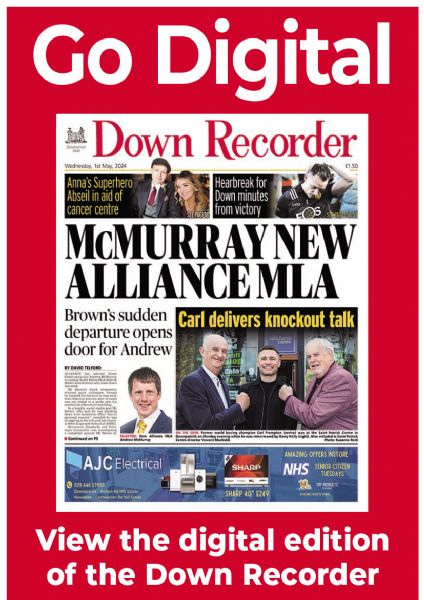Ulster Scots culture must be recognised
Ulster Scots culture must be recognised
24 May 2017
A DUP councillor wants Newry, Mourne and Down Council to recognise the number of people in the area who are passionate supporters of Ulster Scots and to allocate funds to help promote their culture.
Rowallane politician, Billy Walker, said the local authority spent almost £113,000 last year on promoting Irish language in the council area, figure that excludes the amount spent on procuring and erecting street signs in English and Irish.
He said while he respects the right of people who speak Irish and embrace the Gaelic culture, the same respect should be afforded to the Ulster Scots community.
Councillor Walker said he has recently been approached by a number of ratepayers after the local council published its Connect news sheet which provides an update of its work across the district.
“The Irish language is promoted within the brochure but there is no mention of Ulster Scots and people from this community, which is particularly strong in and around the Mournes,” he said.
Councillor Walker said when he has raised the Irish language issue in the council chamber in the past he has been labelled by some as “sectarian, a bigot and anti-Irish.”
He declared: “I am neither and one of my final functions as the last chairman of Down Council was to launch a new book on Irish place names in Lecale. The event was held at the Down County Museum and I was delighted to join with members of the Lecale Gaelic Society for the launch on the night.
“All I am asking is that when it comes to Ulster Scots and the Orange culture there is equality, given the local authority’s current focus on Irish. It is my understanding that not one penny has been spent on promoting Ulster Scots within the district which in anyone’s book is unfair and does not reflect respect and equality.”
In response to the Rowallane politician, a senior Newry, Mourne and Down Council official said Ulster Scots was not promoted within the Connect news sheet as the local authority had not taken a corporate position with regard to using the language in communications, branding and marketing.
Regina Mackin, from the local authority’s corporate planning and policy department, said an article in the brochure entitled ‘promoting Irish language in the district’ communicated positive actions taken by the organisation and reflected corporate commitments within its bilingualism policy and associated procedures to facilitate and encourage the promotion and use of both Irish and English language in the area.
She said while reference was made to dual language street signage, it should be acknowledged this is not in itself an Irish language policy and is delivered through the local authority’s development naming, postal numbering and erection of nameplates policy and procedures.
The council official said she was not aware of any money being spent on promoting Ulster Scots during the last financial year, confirming the spend on the Irish language was almost £113,000.

